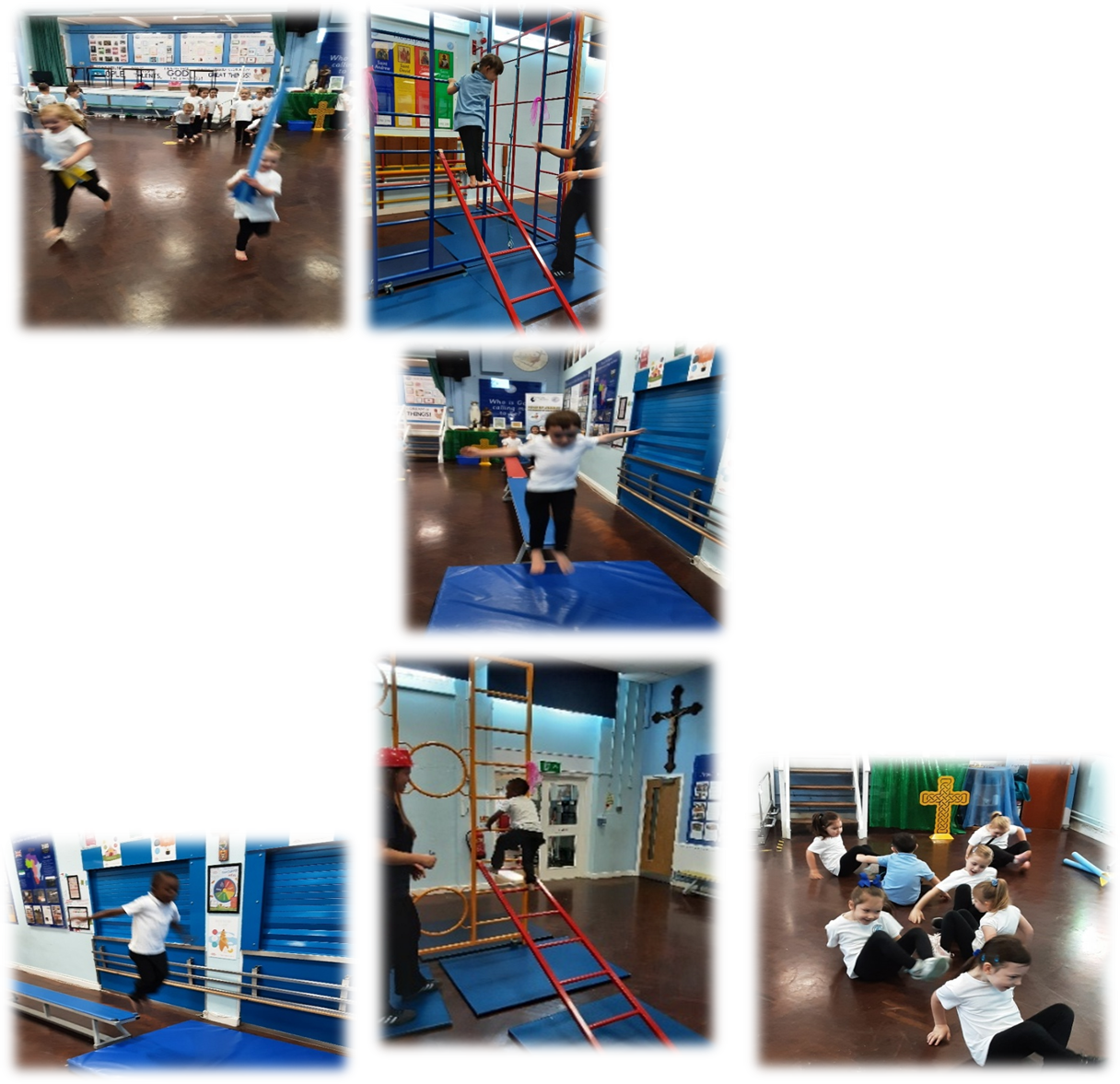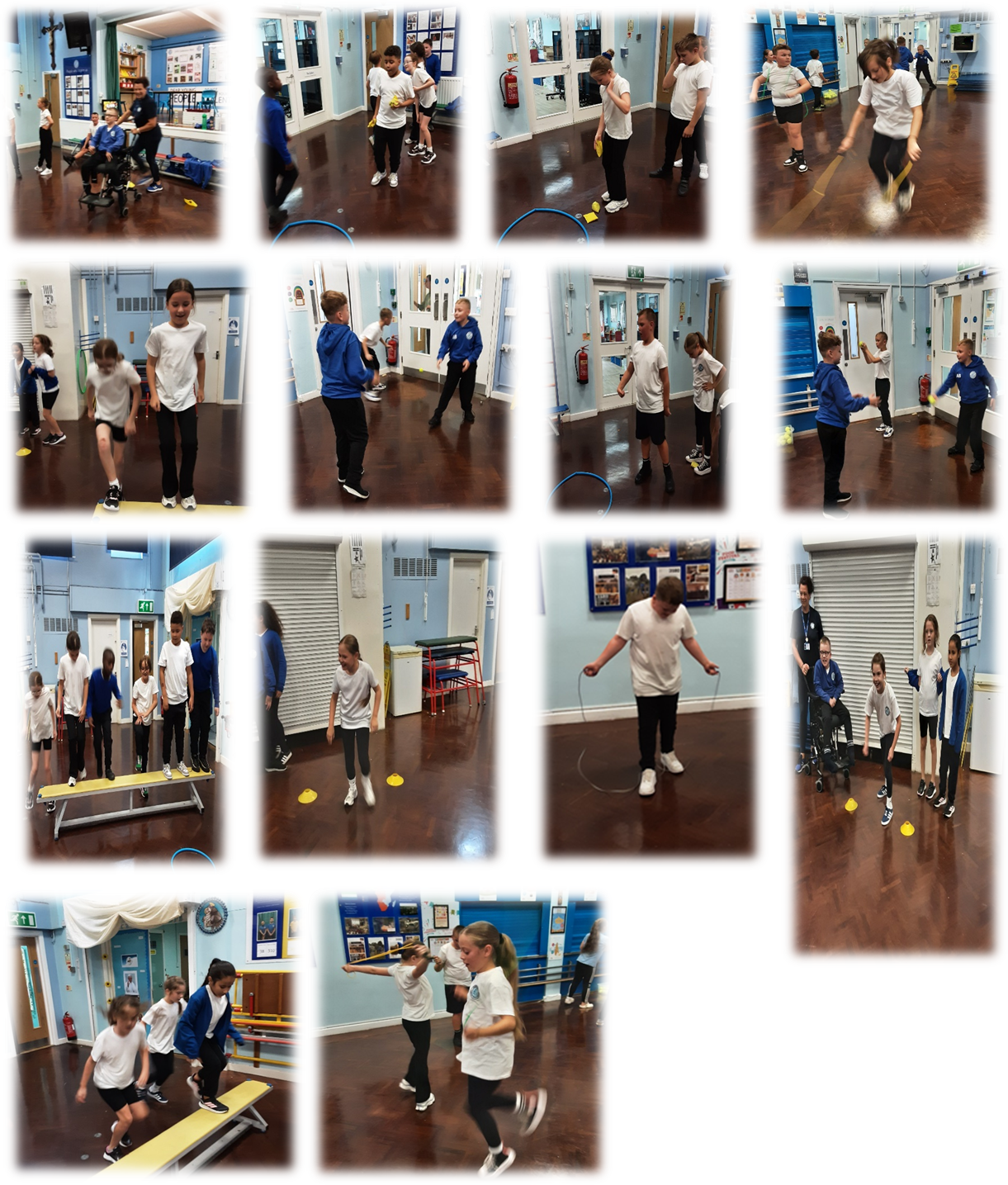PE
Rationale
At St Anthony’s, PE enables pupils to celebrate the gift of their bodies and develop the skills needed to live healthy, active lives. It provides opportunities for enjoyment, challenge, and growth in confidence, resilience, and teamwork. Rooted in Catholic Social Teaching, pupils learn through Stewardship of Creation that they are called to care for their bodies and wellbeing as part of God’s creation. Through Solidarity, they experience the value of teamwork, cooperation, and encouragement, while The Dignity of the Human Person ensures every child is valued for their unique abilities. PE nurtures character, community, and aspiration, preparing pupils to flourish as individuals and contribute positively to society.
Intent
Our PE curriculum, following the Primary PE Planning framework, inspires a lifelong love of movement and sport while equipping pupils with the skills and knowledge to lead active, healthy lifestyles. It offers a carefully sequenced, inclusive experience aligned with the National Curriculum.
Core principles include:
- Nurturing virtuous individuals who show respect, perseverance, and fairness.
- Inspiring high achievement and joy through physical activity.
- Promoting collaboration, leadership, and solidarity through team and individual challenges.
Key Stage 1: Pupils develop fundamental movement skills—agility, balance, and coordination—through games, dance, and gymnastics. They begin to learn about rules, fair play, and working with others.
Key Stage 2: Pupils refine and apply skills in a wider range of contexts including competitive games, athletics, gymnastics, dance, swimming, and outdoor adventurous activities. They build tactical awareness, stamina, and confidence, while developing leadership and responsibility.
Implementation
- Lessons are sequenced to ensure clear progression from EYFS through KS2.
- Units follow a consistent structure: warm-up, skill development, applied tasks/game play, cool-down, and reflection.
- Differentiated pathways (Core, Support, stretch) allow all pupils to succeed and progress.
- Practical demonstrations and visual prompts support understanding.
- Inter- and intra-school competitions give pupils the chance to apply skills with sportsmanship.
- Cross-curricular links with science (body, health), RHE (resilience, teamwork) and RE (values of fairness, dignity, stewardship) enrich learning.
Impact
By the end of primary education, pupils will:
- Have developed competence and confidence across a wide range of physical activities.
- Understand the importance of physical activity for health and wellbeing as part of caring for God’s creation.
- Apply teamwork, leadership, and respect in competitive and cooperative contexts, living out Solidarity and Dignity of the Human Person.
- Show resilience, perseverance, and joy in physical challenge.
- Value physical activity as part of a fulfilling lifestyle that supports their growth as responsible, active citizens.
Assessment
- Each lesson begins with recall of prior knowledge and ends with reflection.
- Teachers use observation, questioning, and feedback to assess progress.
- End-of-unit challenges, performances, or “skill showcases” demonstrate learning.
- Formative and summative assessment ensures progress is monitored, celebrated, and shared with pupils and parents.
SEND Support Statement
- In teaching the Primary PE Planning curriculum, we prioritise quality first teaching alongside adaptive strategies to support all learners, including those with SEND.
- Tasks are scaffolded, equipment adapted, and instructions structured to ensure accessibility.
- Lessons are tiered to provide challenge at every level.
- Success is measured in effort and perseverance as well as skill, ensuring every pupil’s dignity is recognised and celebrated.


